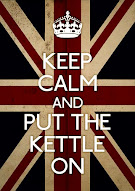 Pierce Brosnan and Ewan McGregor in Roman Polanski’s new thriller.
Pierce Brosnan and Ewan McGregor in Roman Polanski’s new thriller.Why did Tony Blair, in his ten years as Prime Minister, do exactly what the White House wanted on so many occasions? That’s the juicy question buried in the depths of Roman Polanski’s “The Ghost Writer,” an extraordinarily precise and well-made political thriller—the best thing Polanski has done since the seventies, when he brought out the incomparable “Chinatown” and the very fine “Tess.” A few blogging goons have kneecapped the movie for not providing enough thrills, but that’s the wrong critical direction to go in. The director of “Repulsion,” “Rosemary’s Baby,” and “Macbeth” long ago put away his knives. “The Ghost Writer” offers not the blood and terror of Polanski’s early work but the steady pleasures of high intelligence and unmatchable craftsmanship—bristling, hyper-articulate dialogue (the stabs are verbal, and they hurt) and a stunning over-all design that has been color-coördinated to the point of aesthetic mania. Working with the British writer Robert Harris, whose 2007 novel, “The Ghost,” serves as the basis of the movie, Polanski fed the political material—troubling stuff about rendition and C.I.A. collaboration—into the mazy convolutions of a neo-Hitchcock story. He presents the entire movie from the restricted point of view of a likable young man, a hard-drinking, cash-poor writer (Ewan McGregor), who has been hired to finish the memoirs of Adam Lang (Pierce Brosnan), a former Prime Minister clearly modelled on Blair. The writer, who is known in the credits as “the Ghost” (he is never named—the P.M. calls him “man”), is not the first to work at this job. The previous ghostwriter has been found dead on a beach in Martha’s Vineyard, near the house of Lang’s publisher, where the P.M. and his entourage have gathered to work on the book. The Ghost is in trouble from the beginning, and he knows it, but he needs money and self-respect, and he forges on.
The picture is set mostly in the United States, but Polanski, of course, can’t work here, so he used the drab German North Sea coast as a double for the Vineyard in winter. The publisher’s mansion has the island’s requisite gray shingles, yet it’s not some gracious Victorian affair. Instead, it’s a giant modernist shoebox, with generous interior spaces and floor-to-ceiling windows that look out on dunes and a dark ocean. The interiors are all chic designer cement walls and flat or sharply angled surfaces; there’s not a curve anywhere, and hardly a cushion. This punitive luxury was created, as a set (by Albrecht Konrad), at Babelsberg studio, in Berlin, and the views through the windows are either projections or digital reconstructions. Looking through those portals, you appear to be seeing a movie of some sort, a tone poem in gray that refuses to reveal its mysteries. The skies are ashen, the rain never stops, and the writer, when he goes out on a bicycle for some air, gets blinded by the wet. For us, this mock-American landscape is a fascinating bad dream, half familiar, half strange. The cinematographer, Pawel Edelman, turns the constant downpour and gloom into a beautiful, slate-colored curtain—or perhaps I should say shroud. Polanski wants an atmosphere of daunting indefiniteness, a subdued but enveloping field of lies and secrecy, impenetrable to the Ghost, who is lost among power players far too clever for him. I don’t know when I’ve seen menace rendered with such delicate but persistent force.
The P.M.’s manuscript is also gray—maddeningly bland and opaque, a veil of debonair evasion. As the Ghost tries to bring it to life, allegations appear in the press that Lang, when he was P.M., illegally turned over captured terror suspects to the C.I.A. for rendition and torture; a former minister from Lang’s cabinet even insists that his old boss should be tried by the International Criminal Court, in The Hague. Suddenly, the house is besieged by antiwar protesters. Playing a powerful man in exile, repudiated and hated by his own party and by many of his countrymen, Pierce Brosnan gives the strongest performance of his rather lazy career. He doesn’t imitate Blair; he offers his own interpretation of a public man’s impersonally brisk and hardened charm—the smile is reflexive, dazzling, and savage. Lang tells stories about his youth with hearty indifference to their phoniness—even in retreat, he’s a calculating pol, playing the angles, manipulating his eager amanuensis. And, when Lang is criticized or challenged in any way, Brosnan’s charm dissolves into fury; he catches the defensive self-righteousness of power, a leader’s disbelief that anyone might be seeing through him. Brosnan is matched by the wonderful English actress Olivia Williams, as Ruth, Lang’s brilliant wife and longtime political adviser. Ruth has lost her husband’s love—and, more important, his ear—and is taking it hard. Slender and tense, with short dark hair, Williams pulls her legs up under her chin as she sits in the discomforting house. (Her Ruth is so angular and hard-edged that she actually seems to belong in this place, where it’s impossible to hide.) Williams’s gaze could sear the fat off a lamb shank, and her line delivery is withering, yet Ruth is badly wounded, and Williams makes her sympathetic—she’s one of the rare actresses who seem more intelligent and beautiful as they get angrier. Polanski observes the character quirks, the long-standing relations strained by the worsening disgrace of Lang’s situation—there’s something, we see, in the frayed connection of husband and wife that could be more significant than hurt feelings. Tom Wilkinson and Eli Wallach (as a very old, entirely sane hermit living on the beach) make strong appearances, too. The only flaw in the ensemble is Kim Cattrall, who, as Lang’s assistant and mistress, can’t stop smirking (Cattrall lets us know that something dirty is going on). The movie is organically structured—nothing is overstressed, but nothing is wasted, either. The banal manuscript, for instance, assumes an almost totemic power as it’s read, handled, edited, rewritten. It contains secrets finally discovered, decoded.
Life for the Ghost takes a dangerous turn when he finds evidence that Lang is lying about many things, and becomes even more dangerous when Ruth climbs into bed with him. Ewan McGregor’s career got off track in “Star Wars” foolishness, but this movie may put him back in good roles, where he belongs. He’s such a charming actor—avid, bright-eyed, yet slightly acid and self-deprecating, too. His writer, initially no more than a sleepless, overworked hack, grows tired of being a ghost; he wants to be palpable, a man, and he asks questions of powerful people that could get him killed. Polanski takes care that the Ghost’s story is never rushed, mauled, or artificially heightened—the usual style of thrillers now (see “Shutter Island” and every week’s buddy-buddy cop movie for the latest examples). Polanski respects physical plausibility and the passage of time; he wants our belief in his improbable tale, just as Hitchcock did. There may be nothing formally inventive in this kind of classical technique, but, in the hands of a master, it’s smooth and satisfying, and I suggest, dear reader, that you gaze upon it, because it’s all but gone in today’s moviemaking world. Here it works its old magic. You understand, at every instant, what the Ghost feels and knows, and you fear for him. There’s not much violence in the movie, but your scalp tightens anyway.
“The Ghost Writer” plays off the British public’s disillusion with Tony Blair and the recurring complaints about Blair’s alleged collaboration with the C.I.A. Yet, when Lang is cornered by the Ghost, the P.M. speaks with impressive conviction. In effect, he defends the use of torture; he takes the Cheneyesque hard line, ridiculing liberals who want safety and, at the same time, the luxury of high-mindedness. The answer to the question of why he’s so acquiescent to the Americans is worked out in thriller (rather than policy) terms. It’s the kind of supposition that may strike viewers, here and in Britain, as frivolous, or just plain wrong, but it’s a fine piece of mischief—suggestive, wounding to Blair, and, as a fiction, emotionally gratifying in the way of le Carré’s conspiracy plots.
Brosnan’s performance is so forceful in the climactic scene with the Ghost that I don’t think you could easily say where Polanski’s own feelings about rendition lie. But I would guess that he’s split in his personal sympathies—he’s both the man accused of crimes and the Ghost longing to assert his full humanity. Polanski edited the movie while in jail and then under house arrest in Switzerland; the movie’s narrative of an exiled man trapped in a house overtook his own disordered life. He concludes “The Ghost Writer” with a twin flourish: first, a virtuoso travelling shot of an explosive note slowly but inexorably passed through many hands at a social occasion until it reaches its destination, and then a final shot of Lang’s manuscript, the fluttering pages now forlornly scattered about a London street. As in the famous last sequence of “Chinatown,” Polanski is close to despair, but his rejuvenation as a film director is a sign of hope.
David Denby, The New Yorker, 8 March 2010




croppedsidebar.jpg)

.png)


















No comments:
Post a Comment